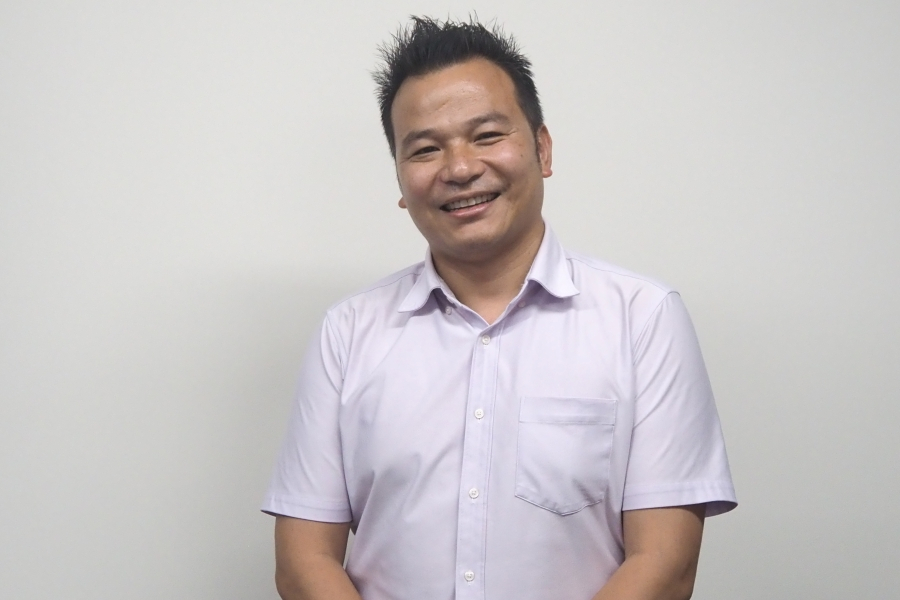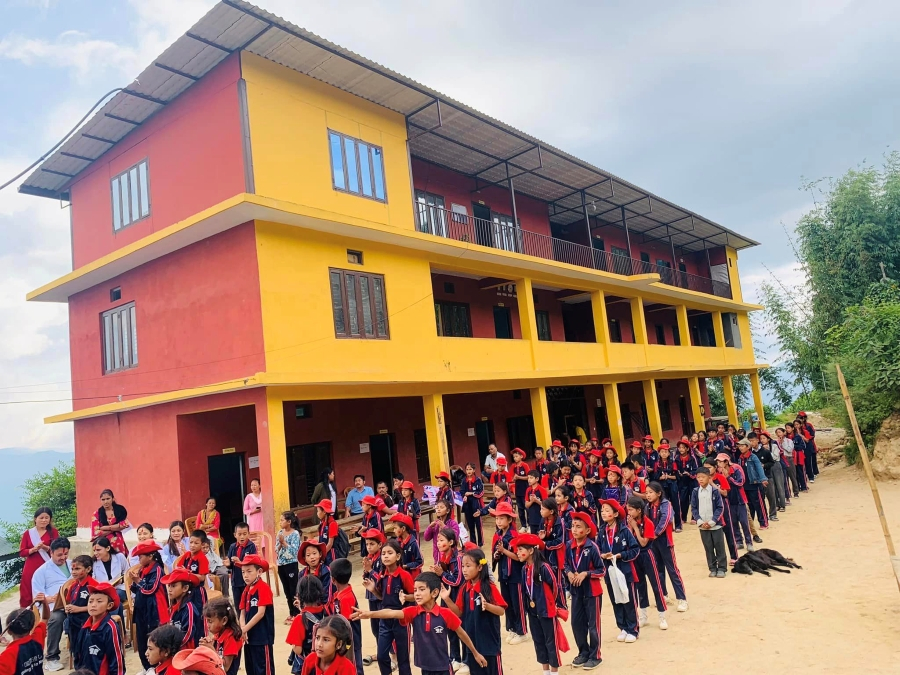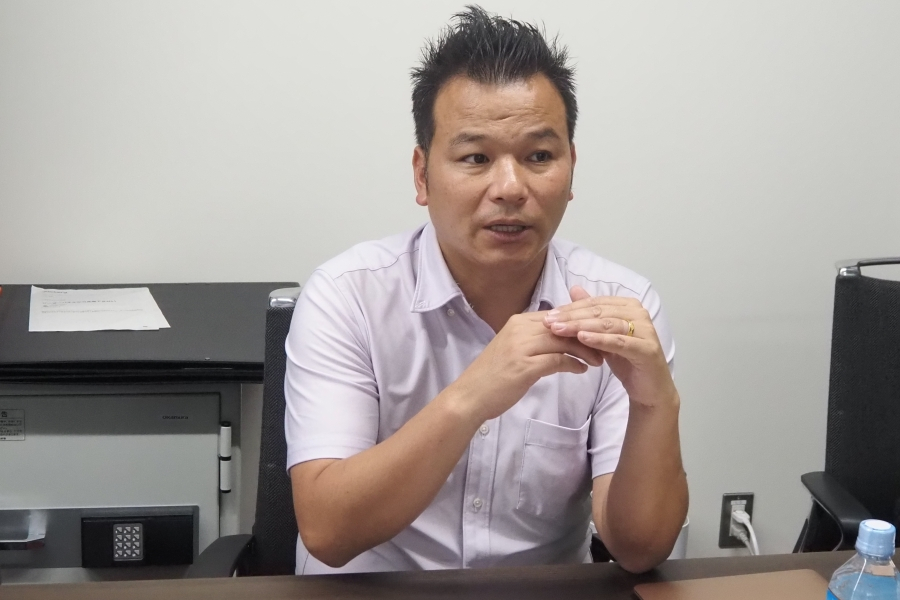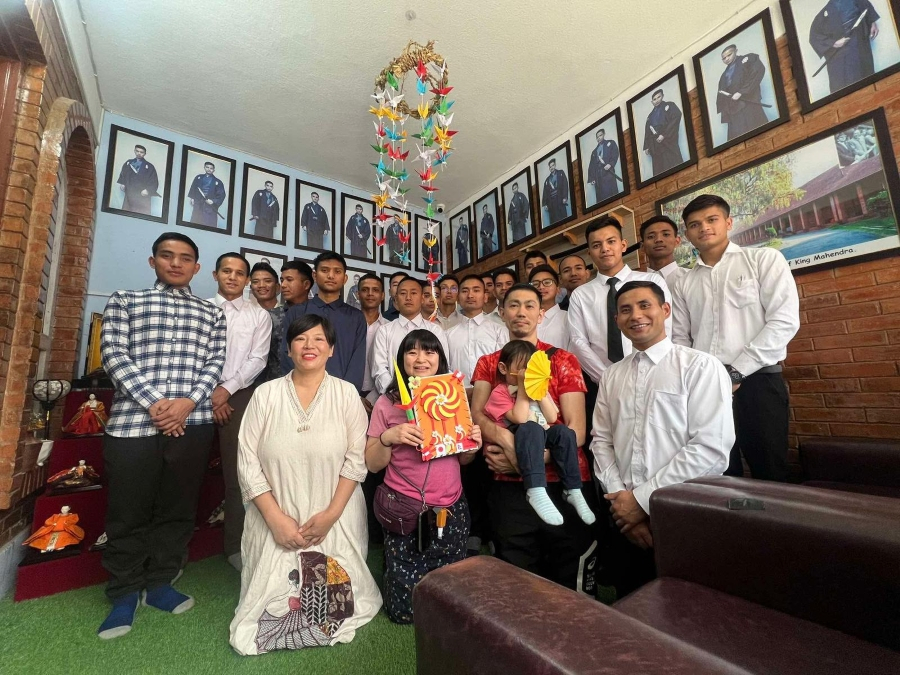Close UP
NPO YouMe Nepal ~Providing high-quality education to children in Nepal regardless of their poverty. Educational reform began with a school built in its founder's home village.~

YouMe Nepal is an NPO that operates schools and provides online education in Nepal. This organization was founded by Mr. Sharad Rai, a native of Nepal, who wanted to "open up the future for children in his home country" and "give back to the country that raised him." YouMe Nepal operates two schools in Nepal and is also working on online education and international exchange. We interviewed Mr. Sharad Rai about his thoughts on establishing an organization and running schools.
Being selected as a government-sponsored scholarship student changed his destiny.

Photo Courtesy: YouMe Nepal
Mr. Rai was born in the village of Durchhim, Khotang District, located far from Kathmandu, the capital of Nepal. Until four or five years ago, the village had no electricity or gas. In addition, there was no running water, and villagers spent between an hour and a half and three hours every morning fetching water. He also says he used to walk an hour and a half each way to a primary school located on a mountain top. A turning point came for Mr. Rai when he was 10 years old. At the prestigious Budhanilkantha School, established in Kathmandu in 1972 with the support of the British government, Mr. Rai was selected as a special student who was exempted from all tuition fees.
"From the moment I was selected as a scholarship student, my life changed miraculously. (The school I entered) was a boarding school, and the government provided uniforms and food, so I was able to receive a high-quality education," says Mr. Rai. After graduating from high school, he went on to study at a Japanese university on a scholarship and began working in Japan.
Mr. Rai wanted to give back to his country someday, but at that time, he wasn't quite sure how he could do so. One day, Mr. Rai connected with friends from the same village, on Facebook. Many of his friends from the village did not graduate from middle school, and went to work in the Middle East and Malaysia. Such migrant workers are forced to perform harsh physical labor for low wages, and some even lose their lives.
"The difference between me and them is whether or not one had the opportunity to receive a high-quality education. I felt that if my friends were given the chance, they would have led completely different lives. I thought that if the educational standards of public schools did not improve, the same situation would continue." Mr. Rai then decided to establish a school in his home district.
Nurturing the ability to think for oneself, so that each student can open up their path in life.
 The school, made with tin roofing and bamboo, gradually grew with more students. And in 2015, it became a concrete school building. The students' matching red hats were inspired by Japanese kindergartens.
The school, made with tin roofing and bamboo, gradually grew with more students. And in 2015, it became a concrete school building. The students' matching red hats were inspired by Japanese kindergartens.Photo Courtesy: YouMe Nepal
"I want to give back to the country by building good schools for children. I want to build a dream school that everyone can attend." With Mr. Rai's strong desire, the first YouMe School, the Khotang Campus, opened in 2011. It started with one teacher and eight students in a small schoolhouse made with tin roofing and bamboo. The name "YouMe School" embodies their desire to make children’s dreams (yume) come true, as well as the meaning of "you" and "me."
“Nepalese public schools only teach reading and writing, and there are no programs to nurture (children's) ability to think for themselves. Therefore, I believe that it is difficult for children to find well-paid jobs after leaving school. At our school, we want to nurture children's ability to think for themselves, rather than just doing what they are told," says Mr. Rai.
Classes are conducted in English at the school, which also emphasizes IT education. If children can work as engineers after graduating, they can earn much higher incomes than they would doing physical labor as migrant workers.
At first, the villagers were skeptical about Mr. Rai's challenge. However, he continued to convey his thoughts, and gradually the number of students increased. And in 2015, the school was replaced with a concrete building. Then, in 2017, the second YouMe School, Biratnagar Campus, opened. YouMe School also provides education to many children through online schools and other means.
"Eighty percent of the students who attend our school come from below middle-class families. This school was created for children who have dreams just like I did when I was a child, but who have given up on them," says Mr. Rai.
Being punctual and keeping promises. Learning from the Japanese education system
 YouMe School is the first school in Nepal to introduce health checkups and school meals.
YouMe School is the first school in Nepal to introduce health checkups and school meals.Photo Courtesy: YouMe Nepal
YouMe School also gives high priority to hygiene education.
"Many of the children who attend our school live in homes without a water supply. As a result, some children do not know how to wash their faces or brush their teeth. Schools thoroughly teach everyday knowledge that is usually taught at home. Recently, a 7-year-old child was bitten by a cobra at home and died because the child was not taken to a proper hospital. We want to increase the number of people with knowledge to protect the lives of children," says Mr. Rai.
In addition, school programs take many cues from Japanese education.
"After graduating from university, I worked as an English teacher at primary and middle schools in Fukuoka. At that time, I saw many things that were not considered normal in Nepal, such as students cleaning the school building themselves, adhering to timekeeping, and keeping promises. If Nepal can develop a culture of punctuality and keeping promises, I believe that when the children grow up, our country will become even better. I thought it was something that should be adopted for the future of Nepal," says Mr. Rai.
Additionally, YouMe Nepal conducts international exchanges with Japan. Furthermore, they are creating opportunities for Nepalese children to experience Japanese culture through online exchanges with Japanese primary and middle schools, as well as visits by Japanese university students to Nepal. "We plan to create a Japanese language curriculum in the future. In addition to English and coding skills, learning Japanese will expand their opportunities to work in Japan," says Mr. Rai.
Even when funds ran out and the school was forced to close, they did not give up, and paved the way for the school to reopen.
 Mr. Rai speaks passionately about his thoughts on YouMe School.
Mr. Rai speaks passionately about his thoughts on YouMe School.When we asked him what was the most difficult thing he had experienced so far, Mr. Rai replied, "Without a doubt, it was running the school."
"For a while after opening, we were in the red. We knew that we couldn't provide education to children who needed it unless we did so, so we decided to open the school even though we knew we would be in the red."
At first, Mr. Rai sent his salary and donations collected from his friends to the school in Nepal, to cover their costs. However, when he returned to university to obtain his doctorate, he lost his income, and the financial situation of the school became even more difficult. At that time, due to the COVID-19 pandemic, movement was restricted, and they were forced to decide to close the Biratnagar Campus.
"Three hundred children were attending the school. The children started crying, saying they didn't want to leave school, and I felt torn apart. It was a really difficult decision,” Mr. Rai recalls.
However, Mr. Rai soon got another chance. He was asked by a friend working at a Japanese IT company who was looking for engineers in Asia, if Mr. Rai knew of any good companies in Nepal. So, Mr. Rai came up with the idea of starting a company himself. He decided to start a business, thinking that if he gathered engineers in Nepal and started a company, he might be able to raise funds to run a school. The company turned a profit in a few months, and Mr. Rai was able to resume school operations just four months after closing; bringing the children back. "I had never started a business before, but I felt it was my destiny when I saw results so quickly. I thought this was a chance given by God," says Mr. Rai.
Samurai Bootcamp: Finding Rough Diamonds
 The Samurai Bootcamp campus is adorned with kimonos, samurai swords, and traditional Japanese dolls, providing visitors with an immersive experience of Japanese culture.
The Samurai Bootcamp campus is adorned with kimonos, samurai swords, and traditional Japanese dolls, providing visitors with an immersive experience of Japanese culture.Photo Courtesy: YouMe Nepal
YouMe School currently has two schools with approximately one thousand students, from nursery school to Grade 10. And by 2028, they plan to have a curriculum in place for grades 11 through 12, as well as college. "If (children) can finish college, they will be able to contribute greatly to society and escape poverty. I want to create an environment where everyone has access to the best education, from nursery school to college," says Mr. Rai.。
In addition, Mr. Rai recently launched Samurai Bootcamp, an intensive eight-month business school program that teaches Japanese language, coding, and business skills. Twenty candidates were selected from 2,200 applicants, and they will acquire skills that will help them aim for future employment at Japanese companies. "Even among poor young people, there must be some who are highly intelligent and who are excellent ‘diamonds in the rough.’ If we can find and nurture such young people, I believe we can contribute to solving the problem of labor shortages in Japan," says Mr. Rai.
The activities of YouMe Nepal have resonated with many people and companies in Japan and have been supported in various ways. Mr. Rai's straightforward thoughts and sincerity, eagerness to learn, and ability to take action surely change the people around him. Regardless of the environment in which children are born, YouMe Nepal continues to strive toward creating a society where they can learn freely and open up their paths in life.
